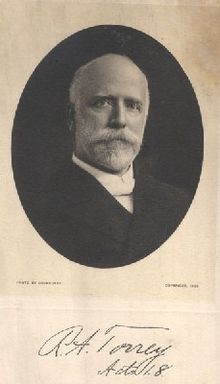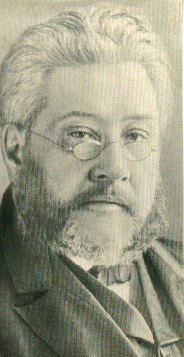John Gill – (1697 – 1771), English Baptist, Biblical scholar, staunch Calvinist

Source: Wikipedia
John Gill was born November 23, 1697 in Kettering, Northamptonshire. In his youth, he attended Kettering Grammar School, mastering the Latin classics and learning Greek by age eleven. The young scholar continued self-study in everything from logic to Hebrew. His love for Hebrew would follow Gill throughout his life.
At the age of about twelve, Gill heard a sermon from his pastor, William Wallis, on the text, “And the Lord called unto Adam, and said unto him, where art thou?” (Genesis 3:9). The message stayed with Gill and eventually led to his conversion. It was not until seven years later that young John made a public profession, when he was almost nineteen years of age.
His first pastoral work was as an intern assisting John Davis at Higham Ferrers in 1718 at age twenty-one. He was subsequently called to pastor the Strict Baptist church at Goat Yard Chapel, Horsleydown, Southwark in 1719. In 1757, his congregation needed larger premises and moved to a Carter Lane, St. Olave’s Street, Southwark. His pastorate lasted 51 years. This Baptist Church would later become the Metropolitan Tabernacle pastored by Charles Spurgeon. During Gill’s ministry the church strongly supported the preaching of George Whitefield at nearby Kennington Common.
In 1748, Gill was awarded the honorary degree of Doctor of Divinity by the University of Aberdeen. He was a profound scholar and a prolific author. His most important works are:
- The Doctrine of the Trinity Stated and Vindicated ( London, 1731)
- The Cause of God and Truth (4 parts, 1735–8), a retort to Daniel Whitby’s Five Points
- An Exposition of the New Testament (3 vols., 1746–8), which with his Exposition of the Old Testament (6 vols., 1748–63) forms his magnum opus
- A Dissertation on the Antiquity of the Hebrew Languages (1767)
- A Body of Doctrinal Divinity (1767)
- A Body of Practical Divinity (1770).
bio from www.ccel.org
Works include in this module include:
The Doctrine of the Trinity Stated and Vindicated ( London, 1731)
The Cause of God and Truth (4 parts, 1735–8), a retort to Daniel Whitby’s Five Points
A Body of Doctrinal Divinity (1767)
A Body of Practical Divinity (1770).
Baptism, A Profession of the Faith of the Gospel (wlue777).top.twm
God and God’s Sovereignty (wlue777).top.twm
God’s Everlasting Covenant.top.twm
God’s Law (wlue777).top.twm
God’s Love (wlue777).top.twm
God’s Word-The Scriptures.top.twm
Man’s Fall and Depravity (wlue777).top.twm
Messiah.top.twm
Prayer (wlue777).top.twm
Summary of the Life, Writings, &c. of Dr. Gill (wlue777).top.twm
The Christian’s Death, Resurrection and Final State in Heaven (wlue777).top.twm
The Divine Right of Infant-Baptism, Examined and Disproved. (wlue777).top.twm
The Gospel Minister (wlue777).top.twm
The Lord Jesus Christ.top.twm
The New Testamant Church and Public Worship (wlue777).top.twm
Works of John Gill



